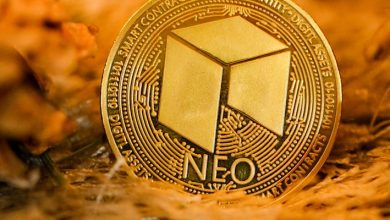The Role of Tokenization in Unlocking New Asset Classes

- Understanding Tokenization and its Impact on Asset Classes
- Exploring the Benefits of Tokenization for Diversifying Investments
- The Evolution of Asset Classes Through Tokenization
- Tokenization: A Game-Changer for Accessing Previously Inaccessible Assets
- Unlocking New Investment Opportunities with Tokenization
- How Tokenization is Reshaping Traditional Asset Classes
Understanding Tokenization and its Impact on Asset Classes
Tokenization is a process that converts real-world assets into digital tokens on a blockchain. This allows for fractional ownership of assets and increased liquidity in traditionally illiquid markets. Tokenization has the potential to revolutionize the way we think about asset classes by opening up new investment opportunities to a wider range of investors.
One of the key impacts of tokenization on asset classes is the democratization of investment. By breaking down assets into smaller, more affordable tokens, tokenization allows retail investors to access asset classes that were previously only available to institutional investors. This can lead to a more inclusive financial system where everyone has the opportunity to invest in a diverse range of assets.
Furthermore, tokenization can increase the efficiency of asset trading by reducing the need for intermediaries and streamlining the settlement process. This can result in lower transaction costs and faster settlement times, making it easier for investors to buy and sell assets. Additionally, tokenization can increase transparency in asset markets by providing a clear record of ownership on a blockchain, reducing the risk of fraud and improving trust in the system.
Overall, tokenization has the potential to unlock new asset classes and transform the way we think about investing. By making assets more accessible, efficient, and transparent, tokenization can democratize investment and open up new opportunities for investors of all sizes. As the technology continues to develop, we can expect to see tokenization play an increasingly important role in shaping the future of asset classes.
Exploring the Benefits of Tokenization for Diversifying Investments
Investors are increasingly turning to tokenization as a means of diversifying their investment portfolios. Tokenization offers a range of benefits that can help investors access new asset classes and opportunities that were previously out of reach. By digitizing assets and representing them as tokens on a blockchain, investors can enjoy increased liquidity, transparency, and accessibility.
One of the key benefits of tokenization is the ability to fractionalize assets, allowing investors to purchase smaller portions of high-value assets. This opens up investment opportunities to a wider range of individuals who may not have had the means to invest in traditional asset classes. Fractional ownership also reduces the barrier to entry for investors, making it easier for them to diversify their portfolios and manage risk effectively.
Tokenization also introduces new levels of transparency and security to the investment process. By recording asset ownership on a blockchain, investors can easily track their investments in real-time and verify the authenticity of their holdings. This level of transparency helps build trust between investors and asset issuers, ultimately reducing the risk of fraud and improving overall market integrity.
Furthermore, tokenization can enhance liquidity in traditionally illiquid markets, such as real estate or fine art. By tokenizing these assets, investors can trade their tokens on secondary markets, allowing for quicker and more efficient transactions. This increased liquidity can lead to reduced holding periods and faster returns on investment, providing investors with more flexibility and control over their assets.
Overall, the benefits of tokenization for diversifying investments are clear. From fractional ownership and increased transparency to enhanced liquidity, tokenization offers a new way for investors to access a diverse range of asset classes and unlock new investment opportunities. As the technology continues to evolve, we can expect to see even more innovative uses of tokenization in the financial markets.
The Evolution of Asset Classes Through Tokenization
Asset classes have undergone a significant transformation with the advent of tokenization. This innovative technology has paved the way for the representation of traditional assets such as real estate, art, and commodities in digital form. Through tokenization, these assets can be divided into smaller units, known as tokens, which can then be traded on blockchain platforms. This process not only increases liquidity but also opens up new investment opportunities for a wider range of investors.
Tokenization has democratized access to asset classes that were once reserved for institutional investors or high-net-worth individuals. By fractionalizing assets, tokenization allows retail investors to diversify their portfolios and gain exposure to a broader range of assets. This democratization of asset ownership has the potential to reduce wealth inequality and empower individuals to build wealth through previously inaccessible investment opportunities.
The evolution of asset classes through tokenization has also led to the creation of entirely new asset classes. For example, non-fungible tokens (NFTs) have emerged as a unique asset class that represents ownership of digital assets such as art, collectibles, and virtual real estate. NFTs have gained popularity in recent years, attracting both investors and creators looking to monetize their digital creations. This new asset class has the potential to revolutionize the way we perceive and trade assets in the digital age.
Overall, tokenization has the power to transform the traditional financial system by unlocking new asset classes and democratizing access to investment opportunities. As this technology continues to evolve, we can expect to see a proliferation of tokenized assets across various industries, further blurring the lines between traditional and digital assets. It is clear that the future of asset classes lies in tokenization, and those who embrace this technology stand to benefit from the opportunities it presents.
Tokenization: A Game-Changer for Accessing Previously Inaccessible Assets
Tokenization has emerged as a game-changer in the world of finance, allowing investors to access previously inaccessible assets. Through tokenization, traditional assets such as real estate, art, and even intellectual property can be divided into digital tokens. This not only makes investing in these assets more accessible to a wider range of investors but also increases liquidity in markets that were once illiquid.
One of the key benefits of tokenization is its ability to fractionalize assets, allowing investors to own a portion of an asset that was previously out of reach. This opens up new investment opportunities for individuals who may not have had the capital to invest in these assets in their entirety. Additionally, tokenization allows for greater transparency and security through the use of blockchain technology, reducing the risk of fraud and improving trust between investors and asset owners.
Furthermore, tokenization has the potential to democratize finance by breaking down barriers to entry and providing greater financial inclusion. By allowing investors to purchase tokens representing fractions of high-value assets, tokenization enables a more diverse range of people to participate in investment opportunities that were once reserved for the wealthy elite. This can help to level the playing field and create more equitable access to wealth-building opportunities.
Overall, tokenization is revolutionizing the way we think about investing and asset ownership. By digitizing assets and making them more accessible to a broader range of investors, tokenization is unlocking new possibilities for individuals to diversify their portfolios and participate in markets that were previously off-limits. As the technology continues to evolve, we can expect to see even more innovative uses of tokenization in the future.
Unlocking New Investment Opportunities with Tokenization
Tokenization has revolutionized the way we think about investments by opening up new opportunities for asset classes that were previously inaccessible to many investors. This innovative technology allows for the fractional ownership of assets, making it easier for individuals to diversify their portfolios and invest in a wider range of opportunities.
One of the key benefits of tokenization is its ability to unlock liquidity in traditionally illiquid assets such as real estate, art, and private equity. By digitizing these assets and creating tokens that represent ownership, investors can buy and sell fractions of these assets on secondary markets, providing them with greater flexibility and control over their investments.
Furthermore, tokenization has the potential to democratize investing by lowering the barriers to entry for retail investors. Through tokenization platforms, individuals can invest in high-value assets with lower minimum investment amounts, allowing them to access opportunities that were once reserved for institutional investors.
Overall, tokenization is reshaping the investment landscape by expanding the range of asset classes available to investors and providing them with new ways to diversify their portfolios. As this technology continues to evolve, we can expect to see even more opportunities emerge for investors to capitalize on the benefits of tokenization and unlock new potential for growth in their investment portfolios.
How Tokenization is Reshaping Traditional Asset Classes
Tokenization is revolutionizing the way traditional asset classes are perceived and traded. By converting assets into digital tokens, investors can now access new markets and diversify their portfolios like never before. This shift towards tokenization has opened up opportunities for fractional ownership, increased liquidity, and improved transparency in asset trading.
Tokenization has the potential to reshape industries such as real estate, fine art, and even commodities by making them more accessible to a wider range of investors. This democratization of asset ownership is leveling the playing field and allowing individuals to invest in assets that were previously out of reach.
The benefits of tokenization extend beyond just accessibility. By using blockchain technology, asset transactions can be executed faster and with lower costs compared to traditional methods. Smart contracts also help automate processes, reduce the need for intermediaries, and enhance security throughout the asset lifecycle.
As more asset classes become tokenized, the financial landscape is evolving to accommodate this new wave of digital assets. Regulatory frameworks are adapting to ensure investor protection and market integrity while fostering innovation in the tokenization space. This transformation is creating a more efficient and inclusive financial ecosystem that is poised for continued growth and development.



